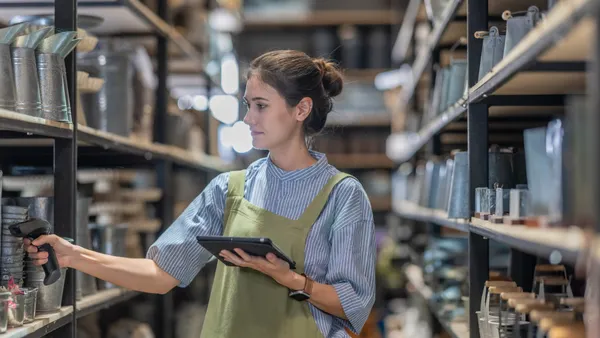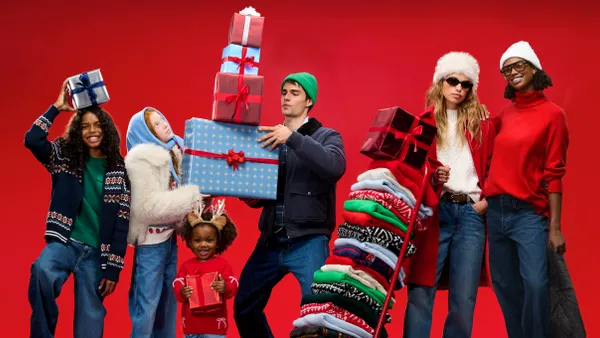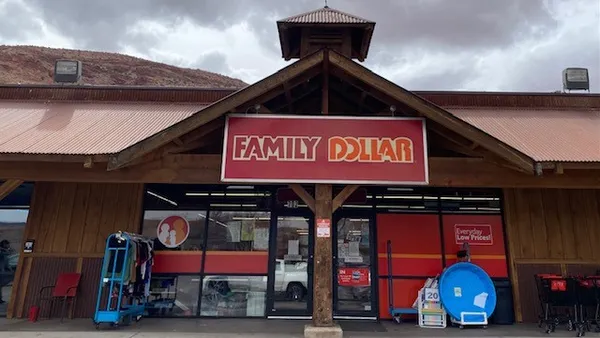Dive Brief:
- Fabric, the robotic micro-fulfillment technology company formerly known as Commonsense Robotics, will open at least two new fulfillment centers in Manhattan in 2020, the company's Chief Commercial Officer Steve Hornyak told Supply Chain Dive at the National Retail Federation's Big Show in New York City on Sunday. Both facilities will serve multiple, yet-undisclosed, non-grocery clients.
- The first micro-fulfillment center will be located in Brooklyn, New York and open in the first quarter of 2020. The second will be in Long Island City in Queens, New York and will launch in Q2 2020. The company has 14 total U.S. sites in development.
- Tight same-day delivery windows from the facilities — likely just a few hours — will be enabled by gig-economy delivery partnerships the firm is also not yet ready to disclose.
Dive Insight:
The move to enter the New York City market for non-grocery clients means Fabric’s service will allow retailers and brands to compete directly with Amazon Prime Now and Target's same-day service when it comes to speed, Hornyak said. Warehousing inventory within the five boroughs will facilitate 2-hour and even 1-hour delivery, he explained.
Fabric came to the U.S. from Israel fairly recently, moving its headquarters from Tel Aviv to New York in September shortly before announcing an additional $100 million in funding.
Beyond space efficiency, the labor efficiency and flexibility of robotic-enabled fulfillment makes urban locations cost-effective, Hornyak said.
"It's not that humans can't do this," he said. "Humans can do it. But you've got all these [demand] spikes in e-commerce. Robots are very good at spikes, humans are not."
The company specializes in working with small urban spaces. From a 6,000-square-foot warehouse, Fabric can house 15,000 SKUs and fulfill 500 to 600 orders per day, according to Hornyak. Its 18,000 square feet basement micro-fulfillment center underneath a Tel Aviv grocery store went live in December in a space with 11-foot high ceilings.
Renderings of the Brooklyn space, for which construction is already underway, show shelves of totes filling almost the entire space. Human staff will fill the plastic totes that shuffle around the automated structure (a process called "decanting"), pick and pack orders.
Deliveries from the New York facilities will require multiple local last-mile logistics partners. Finished orders will leave the micro-fulfillment centers in vans which will then meet up with gig economy delivery workers within walking distance of the final delivery destinations.
Though initial clients are not yet public, Fabric has been able to hand-pick its first U.S. clients due to overwhelming demand, Hornyak said.














